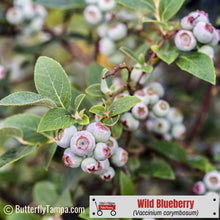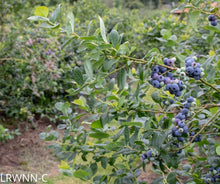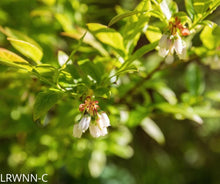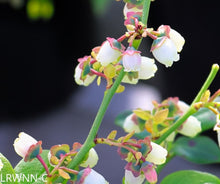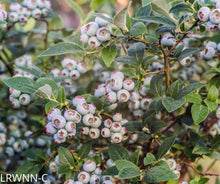
Highbush Blueberry (Vaccinium corymbosum) is a versatile shrub that brings both ornamental beauty and ecological value to gardens and landscapes. Growing to heights of 6 to 12 feet with a spread of 3 to 5 feet, it can be shaped into a picturesque hedge or planted as a standalone feature. Its delicate white flowers bloom in spring, followed by clusters of blue-black berries that ripen in summer, providing visual interest and a valuable food source for birds and other wildlife.
Thriving in partial shade, Highbush Blueberry prefers slightly wet to dry, acidic sandy soil and is well-suited to Florida’s growing conditions. Beyond its aesthetic appeal, this shrub supports local ecosystems by attracting a variety of pollinators, including bees and butterflies, to its blossoms. Its delicious berries can also be harvested for culinary use, making it a practical and rewarding addition to gardens that prioritize both beauty and biodiversity.
- Long-lived perennial shrub
- Used as a natural hedge
- Flower color: white
- Fruit color: blue black
- Exposure: partial shade
- Height: 6 – 12 ft. Width: 3 – 5 ft.
- Soil type: sand
- Requires acidic soil
- Moisture level: slightly wet to dry
- Not salt tolerant
- Found in moist-wet sites, hardwood swamps, cypress swamps, seep swamps
- Fruit is edible for humans and birds and other wildlife
- Attracts many pollinators, native bees
/mp





